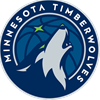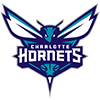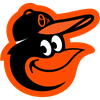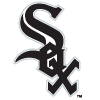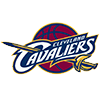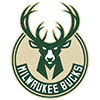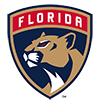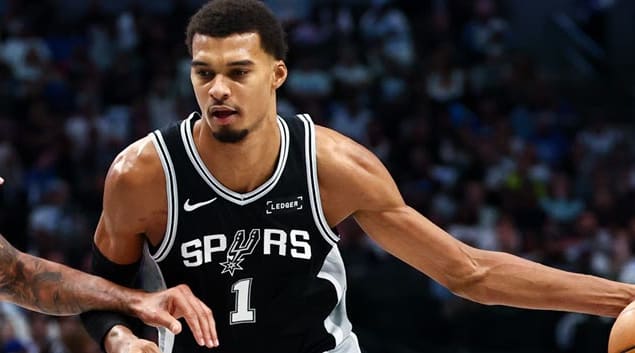STATE OF THE FRANCHISE
The 2010-2011 season was another rebuilding season for the Pistons, marking the third consecutive campaign the team failed to make the playoffs. First-year coach Lawrence Frank led the team to a 25-41 record in the lockout-shortened season. Despite the abysmal record, the team actually showed signs of growth, going 21-20 after a rough start to the season. The team's ability to be competitive down the stretch directly correlated with Greg Monroe developing into a legitimate franchise piece to build around, while the rest of the team's young pieces (Rodney Stuckey, Brandon Knight and Jonas Jerebko) flashed enough potential to be considered solid parts of the core going forward.
With the ownership situation finally settled in Motown, Pistons president Joe Dumars was able to make some roster moves this offseason, including the trade of Ben Gordon for Corey Maggette, which marked Dumars first trade since 2009. The trade was more about getting rid of Gordon's contract than acquiring Maggette, but it still highlights the Pistons ability to start shaping the roster for the future. That future begins and ends with Monroe and Knight, both of whom will play pivotal roles in the Pistons' success (or lack thereof) this season and beyond. Stuckey, Jerebko, Tayshaun Prince, Jason Maxiell, Charlie Villanueva, Austin Daye and Will Bynum will be the other players returning from last year's roster, while the team will bring in multiple fresh faces to fill up the roster. The rookies
STATE OF THE FRANCHISE
The 2010-2011 season was another rebuilding season for the Pistons, marking the third consecutive campaign the team failed to make the playoffs. First-year coach Lawrence Frank led the team to a 25-41 record in the lockout-shortened season. Despite the abysmal record, the team actually showed signs of growth, going 21-20 after a rough start to the season. The team's ability to be competitive down the stretch directly correlated with Greg Monroe developing into a legitimate franchise piece to build around, while the rest of the team's young pieces (Rodney Stuckey, Brandon Knight and Jonas Jerebko) flashed enough potential to be considered solid parts of the core going forward.
With the ownership situation finally settled in Motown, Pistons president Joe Dumars was able to make some roster moves this offseason, including the trade of Ben Gordon for Corey Maggette, which marked Dumars first trade since 2009. The trade was more about getting rid of Gordon's contract than acquiring Maggette, but it still highlights the Pistons ability to start shaping the roster for the future. That future begins and ends with Monroe and Knight, both of whom will play pivotal roles in the Pistons' success (or lack thereof) this season and beyond. Stuckey, Jerebko, Tayshaun Prince, Jason Maxiell, Charlie Villanueva, Austin Daye and Will Bynum will be the other players returning from last year's roster, while the team will bring in multiple fresh faces to fill up the roster. The rookies include 2012 draft picks Andre Drummond, Kim English and Khris Middleton, 2011 draft pick Kyle Singler and international free agent Vyacheslav Kravtsov. While still raw on the offensive end of the court, Drummond is the only rookie who figures to have a chance at making an impact large enough to warrant much fantasy consideration.
PLAYING TIME DISTRIBUTION
While Frank said his entire starting lineup is up for grabs during training camp, there probably won't be many surprises when the Pistons step on the hardwood for the opening tip.
Knight and Stuckey figure to be the two starting guards, with each player playing 32-35 minutes per game. Even if the team opts to deploy Stuckey off the bench as a sixth man (which has happened at times in the past), he'll still see about 30 mpg and remain fantasy relevant. The rest of the backcourt rotation remains up in the air. Bynum figures to get time as the backup point guard, but his role won't likely surpass the 14 mpg he saw last season. At the two, Maggette, Singler, Daye and English could all see reserve minutes. Maggette figures to see the most action among that group, but he'll be able to slide over to small forward as well. Pencil Maggette in for 25 mpg, while the remaining four will see anywhere from 10-15 mpg.
Unless something unexpected happens, the Pistons will once again roll with Prince as the starting small forward. He has averaged a steady 33 mpg throughout his career, but with the glut of aforementioned swingmen available, Prince should see a dip to about 28-30 mpg in his 11th season. The power forward spot will either be handed to Monroe, who can also play center, or a handful of guys will battle it out for the starting gig. Maxiell started 42 games last year while playing a career-high 23 mpg. He might still start, but Maxiell will likely take on a lesser role, resulting in 15-20 mpg. While neither player is a favorite to start, Jerebko and Villanueva will each see time at both forward spots. Jerebko will see about the 23 mpg he saw last year, while Villanueva should see bounce back to the 22-minute range he averaged in 2010-11.
Playing time at the center position could assumed mostly by Monroe, or the team could opt give newcomers Drummond and Kravtsov more time than expected. Regardless of how the minutes at each frontcourt position shake out, Monroe is the most likely player on the Pistons who has a shot to average over 35 mpg. Drummond's playing time will likely start off light, but he could end up averaging around 20 mpg by season's end if he has significant strides in his development. Kravtsov is a defensive specialist who will likely play around 8-10 mpg at most.
PLAYER OUTLOOKS
Center
Greg Monroe: With a breakout season in 2011-12, Monroe solidified himself as the Pistons' primary building block and one of the more intriguing young big men to target in fantasy. In just his second season in the NBA, the Georgetown product put together averages of 15.4 points, 9.7 rebounds, 2.3 assists and 1.3 steals while showing effectiveness from both the floor (52.1) and charity stripe (73.9). He showed vast improvements in his offensive game during his sophomore season, taking and hitting mid-range jumpers with confidence while also being able to take most opposing big men to the rack and finish with a sweeping, left-handed baby hook. While athletic, Monroe isn't a high-flyer and spends most of his time below the rim. This has resulted in an average of just 0.6 blocks per game through his first two seasons. As his defensive game develops, Monroe will start swatting away more shots, but he'll never be an elite shot blocker like other big men. Instead, Monroe will rely on his ability to rack up good amounts of steals and assists – both of which are a rare treat from a center-eligible player. The Pistons will continue to give Monroe more of the load to shoulder, so his best days should be ahead of him. If you're looking to go young in your fantasy frontcourt, you'll be hard-pressed to find many up-and-coming big men more attractive than Monroe.
Andre Drummond: Once believed to be a potential No. 1 over pick, Drummond's stock dropped after a up-and-down freshman campaign at UConn. As a result, he dropped to the ninth overall pick in the 2012 NBA Draft where Detroit happily selected him. At 7-0, 279, Drummond has the body of a true NBA center. He's also an absolute beast on the defensive end of the court, racking up 2.7 blocks per game during his lone season in college. But the one area where Drummond needs to refine his skills is on offense. The 19-year-old center shot just 29.5 percent from the free-throw line while having troubles establishing any sort of back-to-the-basket post-up game last year. He lacks a go-to post move and the necessary footwork to thrive at the NBA level immediately, but Drummond is expected to get better in those areas, and as the second youngest player in his draft class he has plenty of time to figure things out. The Pistons figure to patient with Drummond, but if he can take strides in his offensive development, he could see enough run to be a factor in blocks and rebounds by the All-Star break.
Vyacheslav Kravtsov: The Pistons signed Kravtsov to a multi-year contract this summer. The 25-year-old Ukrainian center has size (6-11, 247) and defensive skills, but he lacks much of an offensive game. He has spent time playing in the NBA summer league in the past, but this will mark Kravtsov's first chance at NBA action. Kravtsov will provide the Pistons' with additional depth at center, but he'll be deployed manly to add a defensive presence on the court in limited minutes.
Forward
Tayshaun Prince: Once again, Prince provided the Pistons with a steady veteran presence last season, finishing with averages of 12.7 points, 4.5 rebounds and 2.4 assists in 63 games. He'll enter the 2012-13 campaign in a similar role and should still be locked in as the team's starting small forward, but we could finally start to see Prince's value start to dip. He's entering his 11th season and isn't as stout defensively as he was in his prime. Prince's decent all-around game will still play in deeper formats, but he's not the quality depth option we saw during the prime of his career.
Jonas Jerebko: After missing the entire 2010-11 season with an Achilles injury, Jerebko returned at full strength for the Pistons last year. In 64 games, Jerebko averaged 8.7 points, 4.8 rebounds, 0.6 steals and 0.5 threes in 23 mpg. The 25-year-old Swede can play both forward positions, using his high-energy to perform well at the four while also displaying the necessary athleticism and outside shooting to be a quality option at small forward. He'll likely split his time between the two positions again this year, with the possible opportunity to play more at the three as the season wears down.
Jason Maxiell: Maxiell put together his best season as a pro in 2012, finishing with averages of 6.5 points, 5.1 rebounds and 0.8 blocks while starting 42 of the final 43 games of the season. While he provided the Pistons' starting unit with energetic play and veteran leadership, he still wasn't able to put up numbers that play in most fantasy formats. Mad Max probably won't start for the Pistons this season, but he'll have a similar role off the bench while providing the same type of per-minute production we've seen from him over the course of his seven-year career.
Charlie Villanueva: The 2011-12 campaign was a lost season for Villanueva, as he missed the first couple months of year with a lingering ankle injury. Upon his return, Villanueva was used sparingly, appearing in just 13 games by season's end. He finished with averages of 7.0 points, 3.7 rebounds and 1.2 treys in fewer than 14 mpg. His role with the Pistons this year is still uncertain, but with better health and more practice time, Villanueva expects to take on a bigger role than he had last season. His main value from a fantasy standpoint remains his ability to hit threes, and he'll be able to provide help from downtown regardless of his playing time, but his ability to fully bounce back this year will depend on whether or not Villanueva can carve out around 25 mpg or more.
Kyle Singler: The Pistons selected Singler in the second round of the 2011 NBA Draft. The Duke product opted to play overseas last season after the lockout threatened the NBA season. Singler (6-8, 225) is an athletic wing who will provide the Pistons with a three-point threat off the bench.
Austin Daye: Daye's shine has faded after he was given an opportunity to establish himself in the Pistons' rotation each of the past two years and failed. The 24-year-old swingman struggled with his shot last season, hitting just 32.2 percent on way to a scoring average of 4.7 points in 15 mpg. Daye still has the ability to a contributor in multiple fantasy categories (threes, steals, blocks), but he hasn't been able to play with enough consistency to warrant much playing time. Unless the light bulb goes off this year, Daye could be stuck near the end of the Pistons' bench for the majority of the season.
Khris Middleton: Middleton was selected by the Pistons in the second round of the 2012 draft. He was the last player signed to the Pistons' 15-man roster and could be in line for a D-League stint this year.
Guard
Brandon Knight: Knight put together a solid rookie campaign for the Pistons, earning All-Rookie First Team honors while finishing with averages of 12.8 points, 3.8 assists, 3.2 rebounds, 1.6 threes and 0.7 steals in 32 mpg. The 21-year-old point guard was an efficient scorer all season long, hitting 41.5 percent from the floor, 38.0 percent from downtown and 75.0 percent from the charity stripe. He also proved to be a decent rebounder for a 6-3 point guard, pulling down five or more boards 18 times. The one area where Knight needs to show growth is in his ball distribution. He will probably never be among the league leaders in dimes, but Knight's assist totals should start climbing as he continues to develop. Any restraints the Pistons had on Knight last season should be gone from the equation this year as he's clearly one of the team's top building blocks alongside Monroe and Stuckey. After Kyrie Irving and Klay Thompson, Knight should be one of the top targets in fantasy from the 2011 NBA Draft class.
Rodney Stuckey: Stuckey wasn't particularly consistent in 2011-12 in the scoring department, but seemed to hit his stride in March, putting together five 20-plus point performances over a six game span. However, he suffered toe and hamstring injuries shortly thereafter and wasn't the same when he returned, averaging just 10.4 points per game on 36.4 percent shooting in April. The injuries caused Stuckey to miss 11 games, his second consecutive season of missing 10 or more games. That doesn't make Stuckey as big of a health-risk as some other highly-rated shooting guards (Eric Gordon, Kevin Martin, and Dwyane Wade have all missed more games), but it remains something to be wary of. Perhaps more concerning for Stuckey is the challenge posed by Brandon Knight as the team's alpha dog in the backcourt. While Stuckey faltered down the stretch, Knight played his best ball of the season in April, averaging 13.6 points per game on 46.5 percent shooting and chipped in 4.1 assists per contest. Expect the 20-year-old Knight to shoulder more of the scoring burden in his second year in the league, though that doesn't mean Stuckey will be rendered obsolete. If he can avoid having his season curtailed by injury, Stuckey has a chance to slightly bump up his scoring and return to his career assist and rebound averages after falling off a bit last season.
Corey Maggette: After his lone season in Charlotte, Maggette was traded to the Pistons in exchange for Ben Gordon this offseason. Maggette's season in Charlotte was an injury-plagued year in which he appeared in just 32 games while battling various ailments (Achilles, back, hamstring). When healthy, Maggette was his normal productive self, averaging 15.0 points and 3.9 rebounds while shooting 85.6 percent from the free-throw line. At 33, Maggette is on the downside of his career and he remains one of the bigger injury concerns in the league. He could help out in scoring and free-throw percentage when on the court, but his overall value will be limited unless he stays healthy for the majority of the season, which is asking a lot for a player at this point of his career who has an injury track record like Maggette's.
Kim English: The Pistons selected English with the 44th overall pick of the 2012 NBA Draft. The 23-year-old guard had a solid four-year career at Missouri, finishing his senior season with averages of 14.5 points, 4.2 rebounds, 2.2 threes and 1.6 steals. He's not the most athletic guard, but English has decent size (6-6, 192) with the ability to drill outside shots and play solid perimeter defense. Detroit doesn't have much outside shooting depth at the two, so English could carve out a role of the bench in his first season.
Will Bynum: When healthy, Bynum served as the Pistons backup fourth guard last year, playing behind Knight, Stuckey and Ben Gordon in the rotation. The 29-year-old guard finished with averages of 5.7 points, 1.8 assists and 1.6 rebounds while playing 14 mpg in 36 contests. Bynum is over the various lower-body ailments that plagued him last year, but his spot in the rotation doesn't leave him room for much upside. The one bright spot for Bynum is the Pistons' lack of depth at point guard, which could open up a big boost in playing time should someone higher on the depth chart suffer an injury.
SLEEPER
Brandon Knight: Last year we saw Greg Monroe emerge as a top-40 candidate in his second season. Of all the players on the Pistons current roster, Knight is the most likely to make that type of leap this season. He'll be the undisputed starter at point guard and should see an increase in playing time. Knight is already a stud in the making beyond the arc – his 105 three-pointers made ranked 20th in the league and second among all rookies last season – and he has the skills to be more productive in the assists and steals categories.
BUST
Tayshaun Prince: With numerous younger and cheaper options available, the Pistons will be best served to cut back on Prince's minutes this season. He'll likely still be the starter at small forward, but Jerebko, Singler and others will cut into his playing time. At 32, Prince is past his prime.










